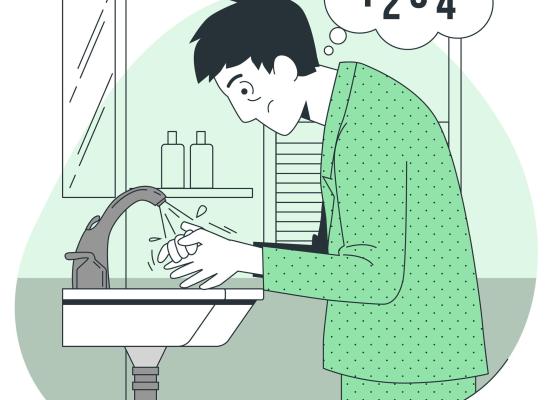Trichotillomania: Pulling Nose Hairs

Online test
Find out the severity of your symptoms with this free online test
Pulling out one's nose hairs in not an uncommon practice and is in fact a acceptable grooming practice, particularly among men. However, what happens when the act of pulling at a nose hair goes beyond being motivated by aesthetics and the person finds themselves compulsively pulling the nose hairs throughout the day? This could be a form of trichotillomania. Trichotillomania is characterised by feelings of an overwhelming urge to pull at hairs on the body. The site for pulling varies from person to person, commonly the scalp, the arms and legs or the face. Compulsive hair pulling can be so severe that it causes balding or hair thinning. Although not as common as other sites for pulling, plucking nose hairs can also be a focus area for some people. There is a very close resemblence of hair pulling of the nose to another body-focused repetitive behaviour (BFRB) known as excoriation disorder, or compulsive skin picking disorder.
How common it is?
Its noted that one to three percent of the population pull out their hair compulsively and that the number is increasing, with more cases reported every year as awareness about trichotillomania as a clinical condition grows. Research on hair pulling disorder, although increasing is still llimited, so there are no specific statistics relating to the pulling of nose hairs as a symptom of trichotillomania.
How do you know when pulling-nose-hairs is a problem?
Repetive engagement in his behaviour, characterised by an intense urge to pluck just prior to plucking the nose hairs is an idicator that there may be a clinical problem. According to the DSM5 ther person must have tried to stop engaging in this behaviout and failed as a criiteria for diagnosis of trichotillomania. Another symptom is that the person experiences an increase sense of tension before pulling or when trying to resist the urge. This is then immediately followed by satisfaction that you feel after pulling your nose hair. Your nose hair pulling can be focused in nature. This means that you pull it to get relief from the irresistible urge to do it. But you may also be pulling your nose hair without even realizing it. This usually happens when you’re bored while watching TV or reading books. You may do it in private or pull it mindlessly while you’re in a public place.
Why it starts?
There’s no exact reason as to why people will have the urge to pull their nose hairs. One of the theories for pulling hair in general is that there is a neurological predisposition to pull their hair to get relief. It’s their way to soothe whatever tension they’re feeling. In other words, pulling, per se, is a coping mechanism for to deal with difficult emotions or anxiety.
How it starts?
The compulsive behavior may start when you frequently experience a stressful event, such as abuse, family conflict, change of routine, death in the family, and so on. It may also be in response to comorbid mental health conditions like anxiety disorder or depression. It may also be triggered by hormonal changes or even related to some genetic and environmental factors.
 Are there damaging effects of pulling nose hairs?
Are there damaging effects of pulling nose hairs?
Whether you pluck your nose hair once or several times a day, there are risks associated with it. Pulling out nose hairs can lead to infections in that area if you break the skin while pulling the hair. Since the nose is located near the brain, in severe cases, the infection could migrate to the base of your brain. Alternatively, if the infection travels to a point where the veins from the nose and brain meet, it can form a blockage causing bigger problems. Some medical doctors consider this passage the triangle of death. In addition to infection, this disorder may also negatively impact self-esteem and affect relationships with your peers. You may also endure derision from your own family and friends if they are aware of the habit and disapprove. Because of the damaging effects of pulling nose hairs, it is advisable to seek treatment and support as soon as possible.
Online test
Find out the severity of your symptoms with this free online test
Start your journey with TrichStop
Take control of your life and find freedom from hair pulling through professional therapy and evidence-based behavioral techniques.
Start Now



